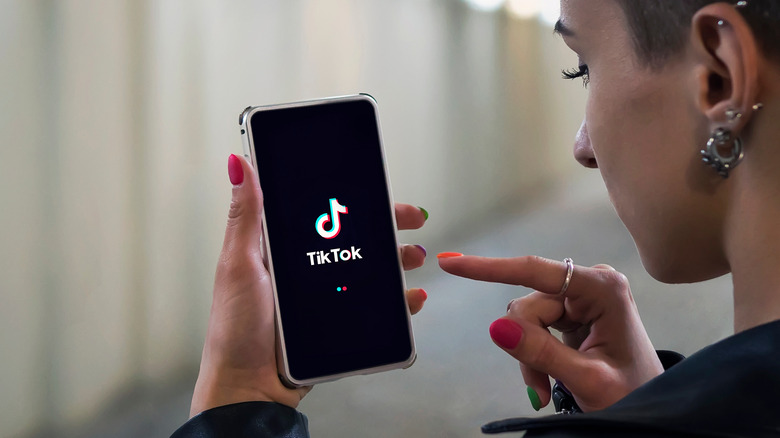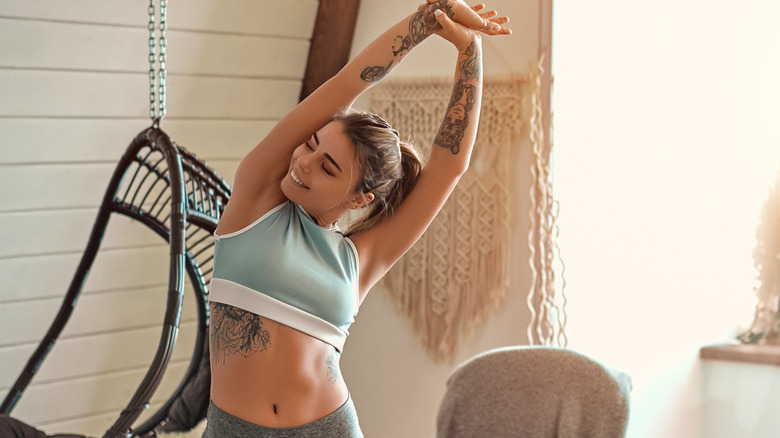Why TikTok's 'That Girl' Trend Has Users Seeing Red
The truth about the TikTok algorithm is that it promotes trends because they get people talking and thus bringing user traffic, and even new users, to the platform (via The Tab). TikTok is particularly good for this, too, because there are so many sides to the social media app. There's the food side of TikTok, the beauty side, the life hacks, and more, so there's a niche for everyone. Trends, then, become popular within these sectors of the user base and expand to becoming popular at large, being shared on Instagram, Facebook, and Twitter.
For example, the "Into the Thick of It" trend blew up on TikTok last year, and it transferred to Instagram where people began using the same concept in Instagram Reels (via Distractify). Other TikTok trends are deemed dangerous, so they really run the full spectrum of content and precaution. Now, the latest TikTok trend — "That Girl" — is both blowing up and causing questions and concern as it evokes the "girlboss" name from a few years ago.
You have to do too many things to be "That Girl"
The term "That Girl" has existed and been colloquially used for a while, but it's now taken on a new form on TikTok that has people seeing red. Traditionally, being called "That Girl" meant you were successful, you knew what you were talking about, and you did something well. It was a term of endearment. Now, it means that you complete a certain number of tasks each day to earn the title (via CBC).
This trend is prevalent in videos like one posted by the TikTok account @.becomethat.girl and one posted by @kaylieestewart. It sees these users explaining that people have to, for example, wake up and begin exercising at 6 a.m. each day, commit to healthy eating, take time to journal, and more — aka all the things they think make you a healthier person. While that sounds great, the attitude presented in this trend is that if you miss even one of these things, you're no longer "That Girl."
This trend is also classist. Everyone can't afford — or doesn't have access to — the amount of fresh fruit they tell you to eat or the matching exercise clothes they say you need to have. It's about fitting a certain aesthetic, so the trend is rooted in exclusion rather than lifting people up. In fact, some of it is a lie. "People usually aren't posting random, representative snapshots of their day-to-day [life]," explained psychiatrist Dr. Dr. Elia Abi-Jaoude to CBC.
Ultimately, just do the little things you can to stay afloat, especially during the pandemic. Anything beyond that is extra and amazing.

